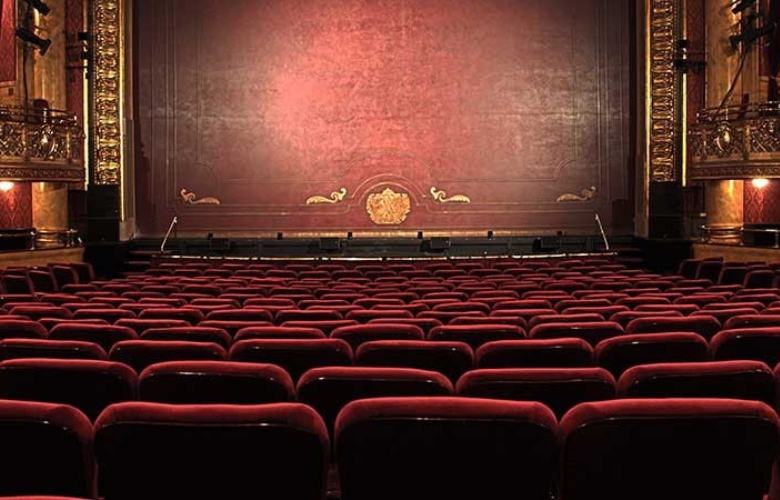
The life of the Stage Manager in touring theatre is one of excitement, adventure, and constant change. It can be challenging, but it’s also a rewarding experience that gives you a front-row seat to everything that goes into putting on a live performance. In this article, we’ll look at some of the key aspects of touring theatre and how they impact your job as a stage manager.
Touring theatre is a unique environment that has its own set of challenges and rewards.
You’ll be traveling from city to city (and country to country) throughout your tour, which means you have to be prepared for anything! Your schedule may change at any moment if there’s an emergency back home or if there are other issues with transportation or weather patterns along the way. Being flexible is one thing, but knowing your stuff is another: touring requires an immense amount of preparation work before even leaving town!
Once everything goes smoothly–and sometimes even when it doesn’t–you get rewarded with amazing moments onstage where everyone in attendance can feel their hearts beating together as one unit; these moments make all those hours spent prepping worth every second spent worrying about whether everything will go according to plan (or not).
The Role of the Production Stage Manager on Tour
As usual, the Production Stage Manager (and Stage Management team) is the person (people) responsible for making sure that the show runs smoothly. They are responsible for communicating with the cast and crew to ensure that they understand where to go, and how to get there, as well as any blocking or technical changes that need to be executed on stage that might be different from the last location. Many times, the Production Stage Manager takes on extra duties that might otherwise be covered by a Company Manager or General Manager because of the fast-paced environment and demand touring requires. Teamwork and trusting the people you work with are more important than ever because you depend on each other to get the show ready to open at lightning speed. During the load-in, load-out, and run of the show, the Stage Manager keeps an eye on all aspects of the production and how that might impact the run of the show in coordination with the Technical Director and other Heads of Departments, including:
Technical oversight that the Production Stage Manager gives is mostly from an artistic perspective to make sure technical elements are remaining consistent from location to location and look the same as it was originally designed and intended. All technical problem-solving and troubleshooting still fall under the purview of the Technical Director.
Venue Preparation and Advancing the Show
Before you begin loading into a new venue, it is important to make sure that the space is safe. Check for fire hazards, electrical hazards, emergency exit pathways, and other safety hazards. Advancing the show is also about half of the work we do in a touring show. While we are in our current city performing, we already have one leg out the door making plans and refining the details for our next city. Can the set fit in the theatre, can the ceiling handle the rigging needs of the show, is there enough room to add in automation machinery, where are the dressing rooms and how many are there, is there a cross-over space upstage, where will quick changes happen, is there a roll door for loading in or just a standard sized door, and what’s nearby the theatre within walking distance. These are all important questions to consider when advancing a show among many others. Many times, shows are modified to be able to fit in every venue they play so that they have the flexibility to load into more venues across the nation and across the globe.
Transportation Logistics
Conclusion
Touring is a great way to push your limits as an artist and manager. The challenges range from technical to interpersonal. You’ll get to see how a show is put together from start to finish from multiple points of view, as well as how it’s performed in different venues. This will help you understand what makes for good touring theatre and what doesn’t so that when you do start working on future projects, it will be more successful than the last one!
Interactivity: The Way Forward for Virtual Events


Bryan Runion is a professional Production Stage Manager whose credits include: Drawn to Life (Cirque du Soleil and Disney), Netflix’s Stranger Things: The Experience, Duel Reality (7 Fingers), La Perle (Dragone), The Voice of Tolerance (The Ministry of Education, UAE); Mastercard Experiences (Mastercard); Everybody Black (World Premiere), Queens (La Jolla Playhouse), Ken Ludwig’s The Gods of Comedy (The Old Globe), TEDx (Chula Vista), Mark Morris Dance Company, Joey Alexander Trio, Ukulele Orchestra of Great Britain (La Jolla Music Society), The Bridges of Madison County (Arkansas Rep). Bryan earn his M.F.A. at The University of California, San Diego and his B.A. at The University of Arkansas at Little Rock. He is a proud member of Actors’ Equity Association and The Stage Managers’ Association.
Read Full Profile© 2021 TheatreArtLife. All rights reserved.

Thank you so much for reading, but you have now reached your free article limit for this month.
Our contributors are currently writing more articles for you to enjoy.
To keep reading, all you have to do is become a subscriber and then you can read unlimited articles anytime.
Your investment will help us continue to ignite connections across the globe in live entertainment and build this community for industry professionals.